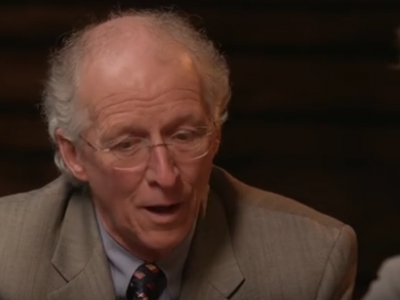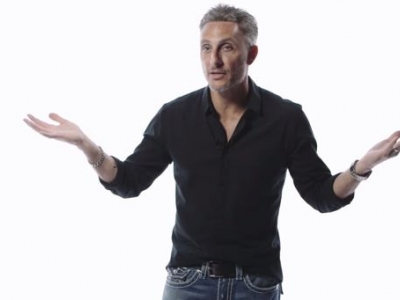
Standing strong through the struggles of life
Practical tips to help you through difficult seasons of pain and stress.
“Life is pain, Highness. Anyone who says differently is selling something,” says the Dread Pirate Roberts in William Goldman’s The Princess Bride.
We all have struggles in life, and sometimes we don’t know how to deal with the pain.
Today I’m pulling my psychologist hat on to talk about dealing with the painful or difficult stuff that comes up inside us. The good news is that we can deal with these internal experiences – and our minds and choices – in such a way that we can live and serve more meaningfully and effectively despite the problems.
What do you struggle with?
We all struggle with different things at different times…
- Maybe you struggle with worry. We all know that Jesus said “do not worry”, but just knowing that does not stop the struggle.
- Maybe you’re stressed due to things outside your control. We can remind ourselves that “God’s got this”, and that we should be doing things in His strength not ours, but what exactly does that look like?
- Maybe you struggle with something that looks a bit like depression – where you feel a sense of helplessness or worthlessness, and/or you just don’t enjoy things the way you used to, and/or your sex life has pretty much gone down the drain.
- Perhaps you’ve lost your social supports and feel abandoned by the people who should be there caring for you in the midst of upheaval.
- Maybe you suffer fatigue or chronic pain or disease – how are you supposed to live and serve well when your own body keeps breaking down?
The struggle affects everyone
Internal distress affects our physical, emotional, social and spiritual selves and causes significant problems. We lose focus and don’t function well when we get lost in worries about the future, distracted by feelings of inadequacy, lose touch with our purpose and direction in life, or become burdened by fatigue and illness.
About 30-35% of the population* will struggle with stress or distress of some kind over the next year. (It could be closer to 50-60% depending on their context and how strictly we define stress.) Of the remainder, either they’ve already had their major stress experience, they will do in the future, or someone they love is in distress. So if this is you, you’re not alone. We desperately need to remember that God does have this all in hand. We must also own the impact that our own minds, lives, and choices play.
My struggle, my choices
I myself suffer from adrenal fatigue. It looks like chronic fatigue, but is not chronic fatigue syndrome. Early on, just getting my girls to school was enough to send me crashing to the couch for the rest of the day. Thankfully, it was diagnosed early 2016 and now I am functional enough to run my practice. But I still need to make serious choices around my wellness and what really matters every day.
For example, my friends, family, business and ministry really matter to me, but what happens when I only have enough energy to focus on one? Do I go into the city to see friends, or stay home to write this post or work on my tax? Self-care, compassion, and nurturing others is important to me, and I can choose to express that in all sorts of ways in life, work and ministry. But when my kids get the flu, I have to give what energy I have into just caring for them, ignore networking functions, and postpone work on my online stress mastery eRetreat. If I push myself, I will crash and burn. And who is served by that?
Our minds become the problem
Suffering is a normal and unavoidable part of living in a fallen world, but our minds don’t like that. Paradoxically, they start filling up with stories about our life or parenting failures, scary predictions, and sad memories, as if warning us about the worst things could make other things better.
We don’t like those unpleasant experiences, so we start spending more time trying to fix or avoid them, and therefore less time actually doing stuff that matters. For example, imagine you had a massive fight with your spouse – it would be wise to avoid discussion until tempers cool. But if you avoid talking to them for a year? Your connection would be damaged. Unpleasant thoughts and emotions can clutter up our mental space so much that we struggle to even notice what we’re doing in the here and now, let alone connect with God, and discover and do the jobs He planned for us.
How then do we handle it?
Here’s some ideas.
- Get clarity on what really matters to you. Who is important to you? What is important to you? What gives your life purpose? If you lived in a world where you could make your life be about anything, what would that be? Choose a handful of words. Look for what you want to stand for as a human being, broken but made in God’s image, saved by his Son, and called to His family.
- Choose a baby step you can do today that moves you towards that. (Don’t pay attention to tomorrow’s baby steps – that’s tomorrow’s job). Notice what thoughts and feelings come up for you when you try to live it out. Do they help you move towards those people and things that matter? Or do they hinder or entangle you and trip you up?
- Remember that the stories that your mind is busy telling you are just that – stories. They may be worthy of the best-seller list, but are they 100% accurate representations of reality? Or are they like the War of the Worlds (complete fiction, which when first read over radio made people think aliens really were invading), or perhaps Lawrence of Arabia (somewhat romanticised version of real life events)? You may not ever be able to tell. So take a moment to acknowledge them, and then let them flow past and focus back on your baby step for today. It doesn’t have to be perfect – it just has to be done.
- Be compassionate to yourself. You are only human, after all, and God knows how your mind works and how you are made.
We all have struggles in life. When we can see this as a normal part of being human, and see how trying to control or avoid it can make it worse, we can choose to focus on what really matters and live that out in some small way every day. God’s got this – so do we.
* Population of Australia. The USA and UK show similar statistics.
Once a clinical psychologist, Krystyna Kidson had kids, fell in love with coaching and is now The Psychologist Coach and founder of the Paraclete Initiative, a stress mastery and burnout prevention ministry; coming alongside God’s people with practical, effective strategies that they can use to throw off that which hinders and be free to love and serve God and others more meaningfully, effectively, and sustainably.
For more articles from Growing Faith, subscribe to our monthly e-newsletter.
To hear about the latest books and resources from Youthworks Media, subscribe here.







